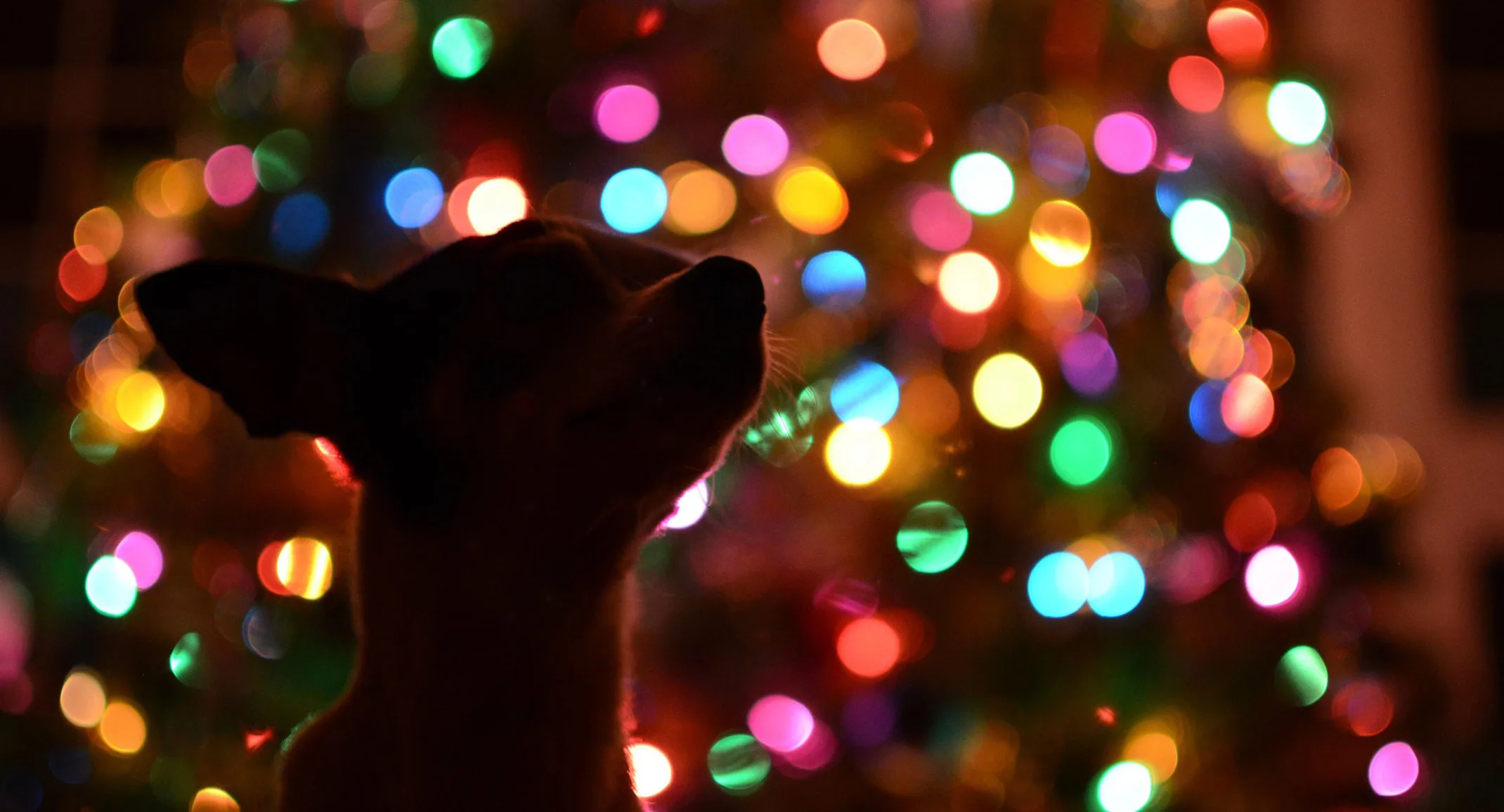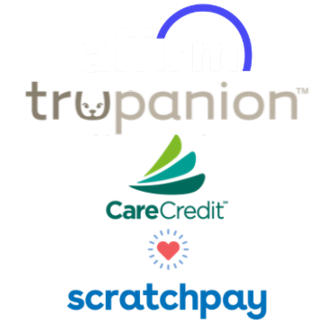5 Tips To Keep Your Pet Safe Over the Holidays
Holiday Pet Tips

We are approaching the most wonderful time of the year, although the 2020 holiday season may look a little different than in years past. Still, your smaller celebration will undoubtedly include festive decorations, mouth-watering foods, and opportunities for your pet to get into mischief. You may not associate pet hazards with the holidays, but at MissionVet, our emergency service is busy every day of the year, including holidays. We are always available to help with mishaps and accidents, but we know you prefer enjoying the holidays without a pet emergency, so follow these tips to ensure your pet stays safe and healthy through the upcoming holiday season.
#1: Don’t share rich holiday foods with your pet
As you sit down at a table overflowing with turkey, stuffing, and gravy, chances are good that your pet will be nearby, with their best “please share with me” expression. As convincing as their puppy dog's eyes may be, sharing a meal of rich, fatty foods can cause your pet a gravy boat-load of trouble. Excess fat causes your pet’s pancreas to work overtime, producing fat-digesting enzymes that are released prematurely to deal with the overload. Unfortunately, these enzymes can incite significant pancreatic and body-wide inflammation. Pancreatitis can become severe enough to warrant hospitalization and can be life-threatening.
Although all fatty foods should be off the table for your pet, these specific items are notorious for causing trouble:
Turkey skin and fat
Gravy
Ham
Buttered rolls or bread
Rich desserts
Instead of fatty scraps, share a few bites of cooked, unseasoned sweet potato, green beans, carrots, or turkey breast with your pet for a special treat.
#2: Keep toxic treats away from your pet
Many of your favorite holiday recipes may contain ingredients that are highly toxic to pets. Keep foods with these ingredients away from your curious pet’s paws:
Chocolate— Baker’s and dark chocolate contain the highest concentrations of toxic ingredients, but milk chocolate can also pose a problem if your pet eats enough.
Xylitol— This sugar substitute may be used in baking, and is found in some types of peanut butter and sugar-free gum, as well as many other sugar-free products. If ingested, xylitol can cause a dangerous blood sugar drop, and possible liver failure.
Raw yeast dough—If you bake bread or rolls from scratch, or buy pre-made dough, be aware that your pet’s warm stomach can act like an oven, causing the dough to rise. Bloat can develop, and as sugar in the dough ferments, alcohol is released, which can cause alcohol poisoning in your pet.
Grapes and raisins— Grapes and raisins can be highly poisonous to dogs. The toxic dose seems to vary among individuals, and only a few grapes can cause lethal kidney failure in some pets, according to reports. Preventing your pet from eating any at all is best.
Garlic and onions— Ingesting these savory ingredients, which are included in many holiday dishes, from stuffing to green bean casserole, can cause life-threatening anemia.
To be safe, keep all dishes with unknown ingredients away from your pet. However, if you think your pet may have eaten something toxic, call our emergency department immediately for guidance.
#3: Prevent decoration disasters for your pet
Through your pet’s eyes, the decorations you carefully place around your home likely look like fun toys or tempting treats. Watch your pet around these potential dangers:
Corn stalks and cobs— Corn stalks decorating your front porch can quickly become moldy and produce mycotoxins that can make your pet sick, if they chew on or eat them. Dogs may also be tempted to eat the corn cobs in your cornucopia centerpiece, which can cause an intestinal obstruction.
Christmas tree— Your Christmas tree may look like the ultimate climbing toy to your cat, or a fun obstacle to run around to your dog. If your pet’s antics knock over the tree, they can be injured.
Glass ornaments— Low-hanging ornaments may be too tempting for your pet to avoid batting onto the floor, where they may shatter and cause a nasty laceration.
Tinsel— Although not many people use tinsel these days, skip it if you choose a retro holiday theme. Cats notoriously cannot resist eating the glittery strands, which can cause a life-threatening linear intestinal foreign body.
Electric cords— Puppies and kittens love to chew on electric cords, so tuck them out of view to prevent electric burns.
#4: Create a quiet space for your introverted pet
You may enjoy the hubbub of holiday activities, but your pet may not be much of a party animal. If your pet becomes anxious around people or doesn’t appreciate the increased activity, create a cozy space for them in an out-of-the-way room. Prepare a long-lasting treat, such as a stuffed Kong, to keep them occupied, and let them spend a quiet evening in their safe haven.
#5: Avoid a holiday escape for your pet
As guests come and go, or you go in and out with armfuls of food and gifts, your pet may take advantage of the distraction and slip out through the open door. Keep your pet in a safe place, such as their crate or a bedroom, during busy times to prevent an escape.
Before the holiday rush, ensure your pet is microchipped in case they do get away. A microchip provides permanent identification, and can’t be lost like an identification tag or collar. Your family veterinarian can typically place a microchip under your pet’s skin during a routine office visit, without sedation. If your pet already has a microchip, take a moment to ensure your contact information is up to date so your pet doesn’t end up spending the holidays without you.
If despite your best efforts, your pet has a holiday emergency, our emergency service is always available. Contact us for immediate help at any time, including the holidays.

